“We are here in London, a city that has hosted the contest four times. And if, from the top of your head, you can name the specific years that happened, well then you know you are a true homosexual–sorry, Eurovision fan.” Those were the words of Swedish comedian Petra Mede, host of the BBC’s 2015 Eurovision Greatest Hits spectacular. The Hammersmith Apollo erupted in laughter, cheering Petra’s hyperbolic punchline.
As is a key ingredient of comedy, Petra’s comment contained a tinge of truth. It’s no secret the Eurovision Song Contest has strong ties to the LGBT+ community. Over the years, Eurovision has introduced the world to countless queer icons: Austria’s Conchita Wurst, Netherlands’ Duncan Laurence and Serbia’s Marija Šerifović to name a few. This Pride month, there is a question to answer: where did the queer fascination with the all-singing, all-dancing show come from?
Pride Month: How Eurovision queered the continent
“Rise like a phoenix
Out of the ashes seeking rather than vengeance
Retribution”
Conchita Wurst, “Rise Like a Phoenix”
The brainchild of Swiss journalist Marcel Bezençon, the Grand Prix Eurovision de la Chanson Européenne, as it was then known, was designed to test the limits of modern television. The show saw vocalists from seven countries compete in a high-calibre display of songwriting excellence. Marcel’s vision succeeded, simultaneously unifying a post-war Europe and creating a new television format that to this day continues to advance live broadcast technology. But behind the scenes, something else was brewing — a cultural phenomenon the EBU could have never predicted.
The song contest was one of the first of its kind to exist on an international level. Before Eurovision, most international competition revolved around sport and, to a lesser degree, politics. Rallies of fans would cheer on their home team at the Olympic Games, the FIFA World Cup, the Ashes test cricket series. Local pageants, talent shows, and national showcases — i.e. Italy’s Sanremo Music Festival — had large followings, but international competitive anything bar sport didn’t exist. Such arenas were dominated by cisgender, heterosexual men, competing to best their opponents through brute strength and to achieve the pinnacle of human fitness.
But Eurovision offered something different. The competitive and patriotic elements of international contests remained, but the playing field changed dramatically. Now, judges were looking for other types of talent: vocal skill, performance ability and composition prowess were the most desirable qualities. Incoming, performing arts professionals — and with them, the queer community.
Hidden pioneers: LGBTQ+ visibility at classic Eurovision
“But the hour will strike
Less difficult nights, and I could love you without talking about it in town
I promise, It’s written”
Jean-Claude Pascal, “Nous les amoureux”
Years before the tidal wave of rainbow flags that fill the Eurovision venues of today, classic song contests of years gone by showcased queer themes, even covertly. French singer Jean-Claude Pascal, won the 1961 contest for Luxembourg with “Nous les amoureux”, a song embedded with the story of a same-sex couple who are unable to love free from discrimination. This song spoke a subtle message to the queer community, at a time when homosexuality was still criminalised in many parts of Europe. By proxy, Jean-Claude Pascal became an invisible pioneer of LGBTQ+ rights.
As the decades passed, Eurovision transitioned from a blacktie and ballgown event to an all-out glitz and glamour spectacle. Queer themes still operated in the undertones, as the contest continued to challenge the norms of competition and rivalry. The Netherlands’ Milly Scott, remembered as the first Black artist to grace the Eurovision stage, drew inspiration from nightclub culture and the cabaret scene with her fully-choreographed “Fernando en Filippo” performance. Meanwhile, Ireland’s king of Eurovision Johnny Logan, singing openly about the pain of love lost, showed a side of masculinity missing from other competitive arenas — a man that is not weakened by but bolstered by his vulnerabilities, emotions, and compassion.
Viva la Diva: Queerness in the face of adversity
“And when she cries, Diva is an angel
When she laughs, she’s a devil
She is all beauty and love”
Dana International, “Diva”
The 43rd edition of the contest in 1998 marked a significant cultural shift. Israeli participant Dana International became the first openly transgender contestant, and went on to win the contest with her track “Diva”. Her song quickly became a LGBTQ+ anthem heard at Pride celebrations around Europe.
Dana’s victory came at a time long before mainstream society had the acceptance of transgender rights on its radar. Only in 2019 did the World Health Organisation declassify being transgender as a mental disorder. Her presence as a proud openly trans woman on an international platform sparked a revolution at Eurovision, opening the doors for a myriad of queer personalities in the years to come: in 2007, Danish drag queen DQ; in 2019, French influencer Bilal Hassani; in 2021, makeup artist Nikkie de Jager — who became the first transgender host of the contest.
Despite an overwhelmingly positive queer presence, LGBTQ+ themes at Eurovision are still met with a level of animosity. In Europe, Turkey’s TRT cited Conchita Wurst’s 2014 victory as a reason for their withdrawal from the contest, meanwhile the now-suspended Belarusian broadcaster BTRC submitted an entry to Eurovision 2021 which included suggestively homophobic language.
Elsewhere, China’s Mango TV censored Ireland’s Eurovision 2018 contestant Ryan O’Shaughnessy’s “Together” performance, which featured two male dancers portraying a same-sex couple. China’s broadcaster refused to air the performance in line with their policy against promotion of “non-traditional” lifestyles. The EBU made swift sanctions against Mango TV, revoking their broadcasting rights and claiming: “[Censorship] is not in line with the EBU’s values of universality and inclusivity and our proud tradition of celebrating diversity through music.”
However sinister these actions may be, censorship and hate speech did not damage the queer spirit of Eurovision. The contemporary Eurovision not only welcomes queerness but celebrates the LGBTQ+ community in its full glory, as performers grace the stage their true unapologetic selves.
Into the future: A new age of LGBTQ+ celebration
“Make us equal, legal, and heard
Would you rather see us suffer
Then open up your mind and stop being so ignorant”
Tone Sekelius, “My Way”
At the modern contest, acceptance is the norm and allyship is commonplace, even from the most unexpected sources. In 2021, as Russia’s Manizha performer her radical anthem “Russian Woman”, the Tajikistan-born singer featured videos of a drag performer and a transmasculine person in her mosaic-like LED backdrop. In a world where transgender and gender-non-conforming people are abhorrently antagonised, such boldness — from a performer whose country outwardly opposed the so-called promotion of LGBTQ+ lifestyles — was recognised and celebrated by fans around the world.
Since Dana International, four winners — Serbia’s Marija Šerifović, Austria’s Conchita Wurst, Netherlands’ Duncan Laurence and two members of Italy’s Måneskin — have been openly queer. The waves also ripple through national selection shows. At Melodi Grand Prix 2020, Lisa Vassilieva bid to sing “I Am Gay” for Norway at Eurovision. Then in 2022, Melodifestivalen welcomed Tone Sekelius, the first openly transgender contestant to compete at the Swedish pre-selection show.
Next year, Eurovision will celebrate its 67th edition following Ukraine’s historic win with Kalush Orchestra in Turin, Italy. But now, there is more than just music to celebrate. As the EBU calls on millions of fans to Share The Moment, Open Up and Celebrate Diversity, LGBTQ+ themes and performers now make up a greater slice of Eurovision contender pool than ever before. The song contest will continue to serve as a platform to amplify and bolster the LGBTQ+ community. Eurovision is, always has been and always will be a space for queer voices.
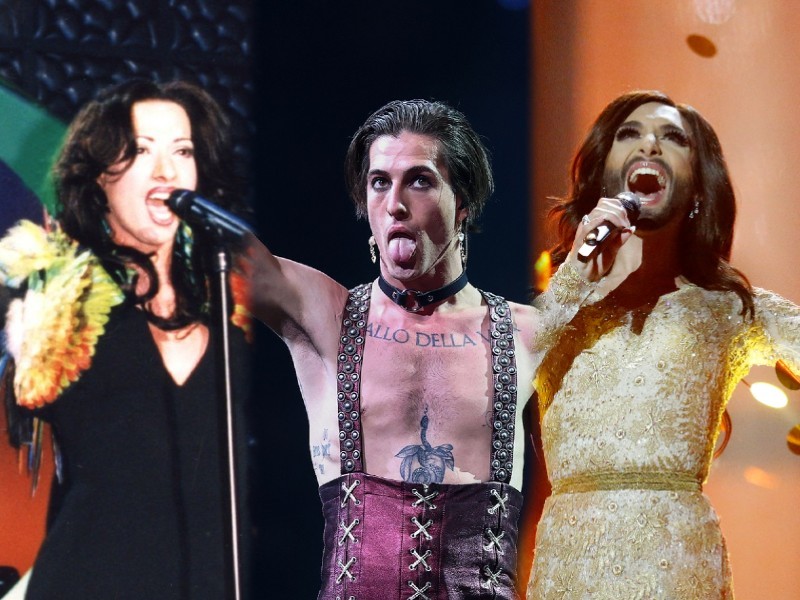
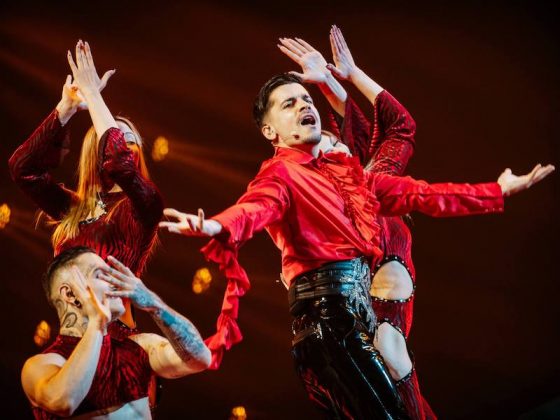

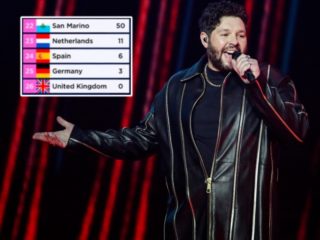
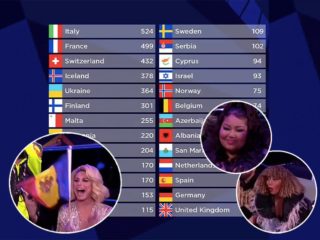
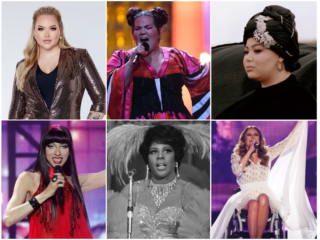
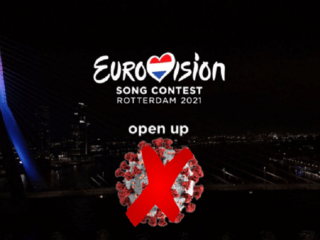
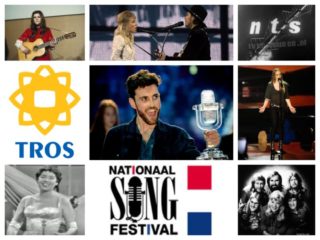
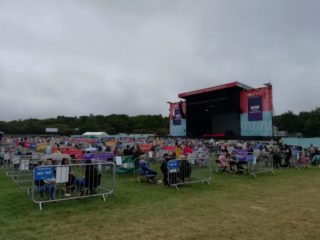
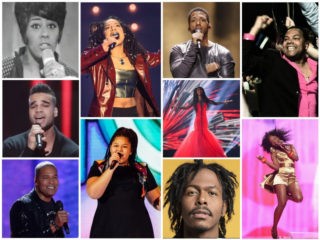

What about 2022? I think openly we had Sheldon Riley, Michael Ben David and Elín from Systur right?
and yet, so much homophobia in these comments>
It’s so sad to see Eurovision fans express their bigotry and discrimination – it’s like they’ve not been taking note.
May is pride month asf
You have forgotten Loreen, who has confirmed she identifies as bisexual in 2017
Damiano is a cishet male. Wouldn’t it have made more sense to choose Victoria for the above photo.
He’s probably in the picture as frontman of Måneskin, which is a very queer band as a whole and a good representation of gender fluidity withing Gen Z. I didn’t even notice it was Damiano, as my mind immediately made the association with Måneskin.
That’s fair, but it would’ve been nice for the representative to be Vic or Ethan precisely because they are the queer members. As a band they’ve challenged that frontman vs “the others” dynamic consistently and it’s not like anyone on this site won’t know who they are.
Agreed.
Ethan has a girlfriend. He said he didn’t want to choose a side, to be open, but it seems he has a girlfriend. Victoria for the moment is lesbian as he has a girlfriend, but, in the past, she had boyfriends, so maybe she is bi. But who cares. Well, I care only Ethan is kissing a girl instead of me. 🙂 Why he didn’t consider me first?
Of course she instead than he, is more appropriate for Vic.
damiano said he liked trans so
One of the reasons for losing so many viewers tho
Personally for me, (i feel i have to insert a tag here to explain my point) as an openly gay, gender non conforming person, I can’t say I’m so bothered about seeing people’s sexual preferences when all I want to do is enjoy good music and great performances. That doesn’t mean that I don’t support someone’s choice to be open about their sexuality. I’m just so unbothered about who someone choses to sleep with. It’s so normal to me that I don’t care. I do understand however that it comes with the territory and I respect people for being massively… Read more »
Thank you.
I also am not bothered about seeing preferences, the thing that bothers me is not seeing them. Acts not feeling comfortable enough to show us, or being careful to leave out pronouns in lyrics so as not to alienate the poor heteros.
I don’t believe any of the three Hatari members are gay, they are all happy with women.
I believe that there is a difference between omitting pronouns due to staged consumerism, or doing so due to deliberately being open to interpretation. For instance, in Molitva, there is a subtle hint that it’s a lesbian love song, but it’s packed in a way that can be open to interpretation. Marija speaks to her love interest directly in second person, referring to them as ”moja molitva” (”my prayer”). Thus, as the word ”molitva” is grammatically female in Serbian, the whole time she is speaking in female grammatical form. So, the implication is there. The song still could be for… Read more »
As long as the song is a strong entry!
I think looking at the noun genders is a really interesting take on Molitva, though many languages have noun gender and it’s just arbitrary. Like in Spanish when a man says mi amor (which is masculine) it doesn’t necessarily mean he’s referring to a man. But I agree that in Molitva’s case it adds something special to the piece. Still magical every time I hear it.
Blanco and Mahmood use different versions of the same word, so we can see one is talking to a man, the other to a woman.
That’s nice, but not really good enough. I don’t know why we should need to stretch our imaginations so far. Songs like Switzerland 2019 have no problem at all in using pronouns, no big deal. Spain 2018 had no problem at all singing adoringly into each other’s faces, no big deal. Just one gay equivalent in 66 years is not too much to ask for. I don’t want implications, just for them to say out loud clearly what they want to say… so nobody can miss it. Brividi is a good step forward.
Oh, absolutely! I agree that some direct songs would be nice to have as well. I was just referring to some more cryptic songs not being a bad thing on their own. As long as it’s not all we have.
Thank you for telling us your family Eurovision memories, even though some of them might have been painful. I am sorry you had to experience that type of fear and shame. Sharing your fragility is a very generous thing, and this fandom should really reconsider their priorities if they dislike such comments… I disagree with your opinion: if one’s desire is to just enjoy good music, there is Opera, where artists interpret songs and personify other characters. Singers, especially songwriters, tell us about their stories through music, and in many cases their queerness is an essential information in the context.… Read more »
In 65 years, Brividi is still the closest we’ve gotten to an openly gay love song. There is still a lot of work to do.
I’m glad Krista Siegfrids decided to add a kiss with another Woman in Marry Me in 2013 despite being straight.
We need A LOT more queer showing in ESC entries.
More Big Daddy Karstens. He got the staging wrong, but the not-a-big-deal-ness of the actual song right.
Eurovision is no stranger to LGBQ+ expressions and the article summarised it well; but somehow it still feels that the delivering of tender love and/or passionate explicit sexuality (the latter also heterosexual) are still held back.
Most queer entries still need to be embedded in camp, and i am afraid because it helps taking away some realness.
But each year artists pave the way for bolder steps, so finger crossed!
I agree. Some pronouns is all I ask for.
Happy pride month, Wiwi! BTW, really enjoyed this article, it would be nice to see more of such editorials and in-depth longer background articles on this site. 🙂
Thanks so much for reading. Happy pride!
I don’t know how much of a hot take this is, but… In my opinion, Eurovision doesn’t need to be classified as gay all the time, which in my opinion happens too frequently and too harshly. It hasn’t been this way for the majority of the contest’s history, but in the more recent decades, it’s growing ever more apparent. Before you raise your imaginary pitchforks at me, I tolerate people regardless of their sexuality or gender, so please do not get the wrong idea. I am not one of those who say things like ‘Conchita only won because she’s a… Read more »
Get some perspective. Gay people don’t like being immediately assumed hetero for the first two decades of their lives, and then constantly needing to come out again and again in every scenario for the rest of their lives. I can’t say I feel much sympathy for you.
Not to mention that when they finally come out to their parents, sometimes they completely annihilate all the hopes & dreams their parents had laid upon them. Like: If you’re gay, you won’t have children, we won’t have grandchildren. And this can turn into real-life drama when you have no siblings.
“it sucks for me do let’s make sure it sucks for you too”
Then maybe just tell people you are straight and they shouldn’t assume your sexuality based on your likings? Why are you triggered by being associated with the community, if you don’t have a negative view of LGBTQ+ people…
Eurovision is a safe space for queer Europeans, and the contribution of the community of the contest in recent years is huge and should be recognized.
I am sorry, but i straggle to empathise with what you are saying.
*struggle
Them assuming your sexuality based on something you like is an issue with them, not the contest.
Queer people and POC have assumptions made about them every day, at the end of the day like what you like and don’t feel that it needs to change just so others’ perspective of you liking said thing will change.
Not sure a pride post is the place to be centering your feelings about your discomfort at being assumed gay for liking Eurovision.
I see people find it hard to comprehend what I try to say. Eurovision is fun and cool, and although the LGBTQ+-related material is not a hindrance, it’s not the ONLY thing about Eurovision that makes it great, and not the ONLY thing that makes it stand out. Anyone can appear on that stage, and whatever sexuality you possess, whatever gender you identify yourself as, it’s all part of the ‘tags’ you give yourself to make you, well… you! It can be good to show the world who you are, and be proud of yourself. We all can be like… Read more »
Your opinion on how pride should be celebrated is irrelevant, as you are not queer and you don’t face the social consequences of identifying as one. You also don’t get to comment how a non-conforming artist should represent their identity on stage.
And what does Sylvia Night’s controversial parody has to do with Pride month, LGBTQ+ in Eurovision, and people assuming you’re gay?
I think i understand where your comments are leading, and the fact that so many people share your thoughts is concerning; so i’ll stop commenting here.
What I gathered from Vivian’s comments is “Be yourself but not too much then it’s too weird and that’s bad lol”
IDK I can’t help but to get pretentious straight gurl vibes from her comments. Sorry.
100% agree! The contest should be about the music from each competing country.
I love Petra, of course I do, but I never found those gay jokes funny at all. Maybe I was just thinking of all those poor fourteen-year olds watching at home with their parents, squirming.
Edward af Sillén wrote all of Petra’s lines, so I wouldn’t blame her anyway, but there was too many. The presenters in Vienna also made jokes about the audience that I did not laugh at.
You mean in Swedish Smorgasbord?
Not just that. 2013, 2015, 2016.
I can’t lie, I did myself when I watched this aged 18. I laughed at the joke live in the arena, but watched it with my family when it was broadcast and I purposely left the room because of the joke! Still love Petra and the tact behind her jokes, always will.
Always thankful to the Eurovision fan base (and the juries) for challenging binary gender norms: a bearded drag queen winner was a massive decision and it sparked so much joy within the community.
Hoping for more and more openness in future editions especially when it comes to sensuality and sexuality. Morality only prevents us to fully appreciate talents.
“Since Dana International, four winners — Serbia’s Marija Šerifovi?, Austria’s Conchita Wurst, Netherlands’ Duncan Laurence and two members of Italy’s Måneskin — have been openly queer. ”
How about Loreen?
Mans is not straight either from what I can recall so yeah extra research wasn’t done for this one..
He is.
Måns called homosexuality “avvikelse”, which for us Swedes it means abnormality/deviation.
So, i would say he’s definitely not queer…
Really? When did he say that??
A few years ago. He has since apologised multiple times, addressing a poor choice of wordings for the mistake (but “avvikelse” explains perfectly what he was saying).
Anyway, it’s in the past now. But he’s straight.
OK.
I was just thinking he isn’t straight because of this:
https://wiwibloggs.com/2015/05/12/mans-zelmerlow-i-would-date-a-guy/93976/
Please notice that article is dated less than two weeks before the final in Vienna. He was trying to put his earlier comments to rest, in case they took away televotes.
Yep, a way to calm things down after the scandal. And it worked well: Wiwi was strongly defending him. Ahhh, these artists and their hypothetical queer scenarios… But then people labled “Brividi” as queerbating.
In Sweden we remember the event well: not only he explained that the norm is heterosexuality because the majority of people is straight (implying that minorities are not the norm), but the word “avvikelse” is very denigratory.
Anyway, a winner that i would gladly not include in the allies of the community.
Gotcha.
And yet, he was featured in almost every contest since he won. If Sobral made his statement, he wont be ever seen again in the contest #doublestandards
He checked all the boxes:
Russian artists, on the other hand, each year were questioned and booed not for their personal opinions, but for the sins of their homophobic government…
Until Sergey came along.
Maybe they meant openly queer at the time of winning? I think Loreen came out a few years ago.
When did Loreen say she’s queer?
I am straight and a Eurovision fan from childhood. Eurovision is for everybody, and everybody should be proud. ?
Straight too, but with a few queer friends to celebrate with. Eurovision is for everyone and we fans should show our support to each other.
Pride Month is a general thing not an ESC thing and pride month exists for queer folks to celebrate their freedom and encourage each other.
Of course everyone should be proud of who they are (including straights), but this is an article celebrating queerness in Eurovision during Pride month.
What are trying to say…
Some people feel that being LGBT+ is nothing to be proud of and that straight people can be proud as well, basically completely not understanding the point of why pride month is a thing. It’s a thing cus being Queer people were and are mistreated across the globe and luckily nowadays in many places it’s getting better every single day and we should celebrate that and also send out courage and support to people who are forced to hide in the closet for their own safety.
Sorry about the question mark. It just happened and was not intentional. It could be misleading. I was in a grocery store actually ? and writing on my mobile phone. I tried to be quick and the it so happened I touched the question mark after the full stop. Now I sent the message and can’t edit it. So I wasn’t asking or being sarchastic or anything you might fear or suspect.
Why no mention of Sestre (Slovenia, ESC 2002) or the Norwegian entry of 1986???
Happy Pride Month! Proud to be bi and proud to be a Eurovision fan!
Every month is the pride month in ESC community xd
yazzz kviinnnnn oooh
WTF was that? Anyway happy pride month queerdo’s.
Allow me to re write/ explain this comment cus this site does not allow you to delete or edit comments for some deranged reason:
*Cue silly wrongly typed stupid comment here*
*Cue me laughing at myself after*
And again I say: Happy pride month Queerdo’s : )